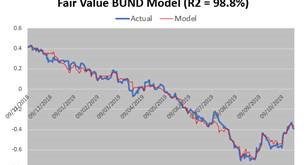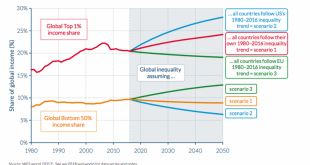Read More »
Where economics went wrong
from Lars Syll David Colander and Craig Freedman’s Where Economics Went Wrong is a provocative book designed to inspire economists to serious reflection on the nature of economics and how it is practiced. It is a book to that seeks to stimulate discussion about the current state of the discipline; it should be read by anyone who categorizes what they do as applied policy work. I agree with much – though not all – of what Colander and Freedman’s write … Reliance on mathematics has obscured...
Read More »The Great Transformation of economic theory
from Asad Zaman In the Origins of Central Banking, we discussed how the Bank of England was created in 1694 to provide funding for a war with France. The success of this institution was noted, and it was replicated across Europe, so that Central Banks came into existence to finance the nearly continuous wars between European powers that characterized the 18th Century. The 19th Century was unusual in that European powers set aside differences to create a Hundred Years of Peace (1814 to...
Read More »Open thread October 29, 2019
The pitfalls of econometrics
from Lars Syll Ed Leamer’s Tantalus on the Road to Asymptopia is one of my favourite critiques of econometrics, and for the benefit of those who are not versed in the econometric jargon, this handy summary gives the gist of it in plain English: Most work in econometrics and regression analysis is made on the assumption that the researcher has a theoretical model that is ‘true.’ Based on this belief of having a correct specification for an econometric model or running a regression, one...
Read More »Are low interest rates ‘fair value’?
The next post is interesting on different levels. First, interest rates are low and it shows that medium run changes in these rates can to quite some extent be ‘explained’ by a cocktail of: economic variables, price setting by central banks and expectation variables (mind that the model is straightforward but the variables aren’t!). This, however, does not explain why USA rates are quite a bit higher than (in this case) German rates, even when inflation, growth and unemployment in the...
Read More »Rising global income inequality is not inevitable in the future
Arrogance destroyed the World Trade Organisation …
… what replaces it will be even worse. That’s the (slightly premature) headline for my recent article in The Conversation. The headline will become operative in December, if as expected, the Trump Administration maintains its refusal to nominate new judges to the WTO appellate panel. That will render the WTO unable to take on new cases, and bring about an effective return to the General Agreement on Trade and Tariffs (GATT) which preceded the WTO. An interesting sidelight is...
Read More »Weekly Indicators for October 21 – 25 at Seeking Alpha
by New Deal democrat Weekly Indicators for October 21 – 25 at Seeking Alpha My Weekly Indicators post is up at Seeking Alpha. The producer side of the economy generally, and manufacturing specifically, remains weak or even contracting. But the larger consumer side, benefitting from lower mortgage rates, continues to power ahead. As usual, clicking over and reading helps reward me a little bit for my efforts. ...
Read More » Heterodox
Heterodox





